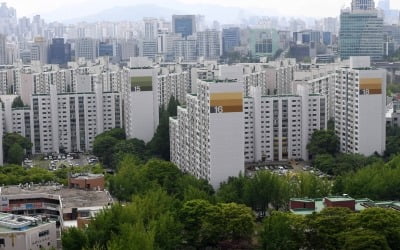"There''s something happening here, what it is ain"t exactly clear."
So sang Buffalo Springfield three decades ago, but it doesn''t always
take a rock-and-roll anthem to describe a rock-and-roll market.
( 중략 )
Something''s happening, all right, in the U.S. stock market, that seems
eerily unfamiliar by the standards of the past four phenomenal years.
With interest rates now rising,growth stocks suddenly aren''t growing.
Large stocks are getting smaller, and the formerly can''t-miss Internet
sector has become a cauldron of dot.commotion.
What"s going on?
( 중략 )
Very few Wall Street seers detect the outlines of a bear market in the
tumult of the past few weeks.
Just the same, many think stocks will hit rougher seas in coming
months, as U.S. investors rearrange their portfolios to accommodate a
changing interest-rate backdrop, while foreigners depart for greener
pastures at home.
( 중략 )
To be sure, the U.S. investment landscape has grown more perilous
since the spring.
Just ask any Internet millionaire:He might well have been a
billionaire until stocks and bonds started misbehaving.
Still, much about the market''s behavior this year recalls Mark Twain"s
famous dictum: History doesn"t repeat itself, but it rhymes.
The Dow and its cousins similarly peaked on July 17 in 1990, and again
in 1998.
( 중략 )
The irony of the stock market''s summer slide is that companies the
length and breadth of the land are pumping out bigger earnings gains
this year than they have in a good long while.
According to First Call, an estimate-tracking service, Wall Street
strategists expect S&P 500 operating earnings to grow by 12.8%, and by
almost 10% in 2000.
That compares with scant to no growth in ''98, depending on how one
calculates operating versus reported earnings.
= Barron"s (월가 투자전문지) 6월21일자 칼럼
-----------------------------------------------------------------------
[ 요약 ]
"무언가가 일어나고 있다. 그러나 무슨 일이 일어나고 있는지는 분명하지
않다"
지금으로부터 30년 전, 버팔로 스프링필드는 이렇게 노래했다.
분명히 미국 주식시장에는 지난 4년과는 너무나 낯선 무언가가 일어나고
있다.
금리가 상승하고 증시의 강세기조는 갑작스럽게 약해지고 있다.
대형주들은 소형주가 돼 가고 있고 인터넷 부문은 혼돈을 거듭하고 있다.
전문가들은 국내 투자자들이 금리변수에 따라 포트폴리오를 재구성하고
있으며, 외국인들이 본국으로 되돌아감에 따라 증시가 향후 몇달간 더
요동칠 것으로 전망한다.
지난해 미국 금융시장은 러시아의 모라토리엄, 세계적 신용경색 등 해외의
혼란요인에 많은 영향을 받았었다.
올해 역시 국제적인 위기 발생 가능성이 많기는 마찬가지다.
인도-파키스탄, 중국-대만의 대치 가능성, 러시아의 불안 등이 대표적인
요인이다.
하지만 지금까지 미국 투자자들을 교란시켜온 것은 국내 문제였다.
올해 금융시장은 저금리, 경제 활황 등으로 증시가 고무된 상태로 시작됐다.
그러나 이후 원유가격이 약 50% 상승하고 세계 위기국들의 경제회복이
가시화되면서 다른 상품가격도 올랐다.
이러한 요인에 노동시장의 긴축성까지 겹치자 연준리는 지난 6월 30일
연방기금금리를 5%로 인상했다.
여름 증시의 아이러니는 기업들의 수익이 예상보다 높게 나타났음에도
불구하고 시장이 침체되었다는 것이다.
-----------------------------------------------------------------------
[ 용어설명 ]
<> S&P 500
미국 신용평가 회사인 스탠더드앤드푸어스(S&P)가 미국의 산업 및 증시동향
을 효과적으로 파악하기 위해 선정한 미국내 5백대 상장기업.
시티그룹, 제너럴모터스, IBM 등 단 30개의 대형 기업만을 대상으로 하고
있는 다우존스지수와 달리 마이크로소프트, 인텔 등 최근 미국 산업과 증시
전반을 주도하고 있는 신예 첨단 기업들을 포함한 각 업종별 주요 기업들을
두루 망라하고 있다.
이 때문에 미국 상무부와 경기 조사기관인 컨퍼런스보드 등은 대표적인
주가 지표로 다우지수 대신 S&P 500 지수를 공식적으로 채택하고 있다.
< 뉴욕=이학영 특파원 hyrhee@earthlink.net >
( 한 국 경 제 신 문 1999년 8월 19일자 ).


![[토요칼럼] 난공불락, 약사 카르텔](https://img.hankyung.com/photo/202512/07.30325968.3.jpg)

![[취재수첩] 프랜차이즈법 개정에 뒤에서 웃는 노동단체들](https://img.hankyung.com/photo/202512/07.14637521.3.jpg)




